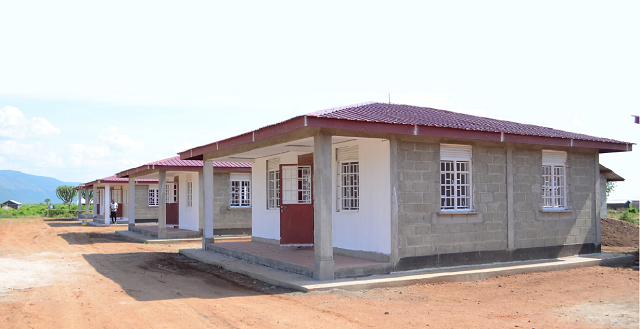
CNOOC’s work at the Kingfisher Development Area stand at less than 10 percent ahead of commercial oil production in 2025
| THE INDEPENDENT | Land acquisition a head of oil and gas developments in the Albertine region stands at 99%, according to the oil companies.
But some of the land owners cannot be traced and the oil companies are now considering the use of government and courts to carryout valuation of their land to facilitate compensation.
Total Energies and CNOOC Uganda Ltd – the two companies developing the country’s oil and gas resources – are expected to start commercial production in the first quarter of 2025.
Zac Lubega, head of corporate affairs at Cnooc Uganda Ltd said the firm has decided to invoke the law that allows them to take over land without the consent of the owner or user, depositing the sum of money based on the valuation with the courts of law.
He said this is based on the fact that the efforts to trace owners of six tracts of land averaging 1.5 acres has been futile yet the project has to go on.
“Our intention is that we reach out to everyone before we start construction works in those areas,” he said, adding that the current law provides circumstances under which land can be compulsorily acquired.
The companies plan to apply the controversial Land Acquisition Act of 1965 to complete the land acquisition process in the areas of oil and gas activities.
However, the 1965 Land Acquisition Act was challenged in courts of law in 2014 following a successful petition to the Constitutional Court by residents along the Hoima-Kaiso Tonya road when Uganda National Roads Authority attempted to take over their land before compensation.
The Constitutional Court found that the Land Acquisition Act was unconstitutional and inconsistent with Article 26(2) of the Constitution, which provides for the prompt payment of fair and adequate compensation prior to the taking of possession or acquisition of any property by the State.
On appeal, the Supreme Court confirmed the sanctity of property rights under the Constitution. ”Under Article 26(2) of the Constitution, that no person can be compulsorily deprived of property without prompt payment of fair and adequate compensation prior to the taking of possession or acquisition of the property,” says MAKKS Advocates.
But in its appeal to the Supreme Court, UNRA sought to argue, among others, that Article 26 was not a non-derogable right and that in certain circumstances, the State would be entitled to compulsorily acquire property before payment of compensation for instance in situations of natural disasters, emergencies or in the interest of public good.
The Court thus held that whereas Article 26 was not among the non-derogable rights, this does not give powers to government to compulsorily acquire people’s land without prior payment, and that such planned government projects do not fall under the exceptions of disasters and emergences.
But Gloria Sebikari, the Manager, Corporate Affairs at Petroleum Authority of Uganda, said the companies will not be breaking the law if they acquire the land after depositing a value with the courts of law.
“The current Land Acquisition Act provides for compulsory acquisition by depositing the amount in court. The amendment that was being proposed was to make it more direct for a project to go on,” she said.
“Because, before you go to court, the minister appoints the valuer for that specific contested area… so the process already exists in the current law. What the amendment was trying to bring on board, was to make it faster, without going through certain procedures,” she added.
So far, Cnooc’s work at the Kingfisher Development Area stand at less than 10 percent progress with commercial oil production expected in 2025.
****
 The Independent Uganda: You get the Truth we Pay the Price
The Independent Uganda: You get the Truth we Pay the Price





